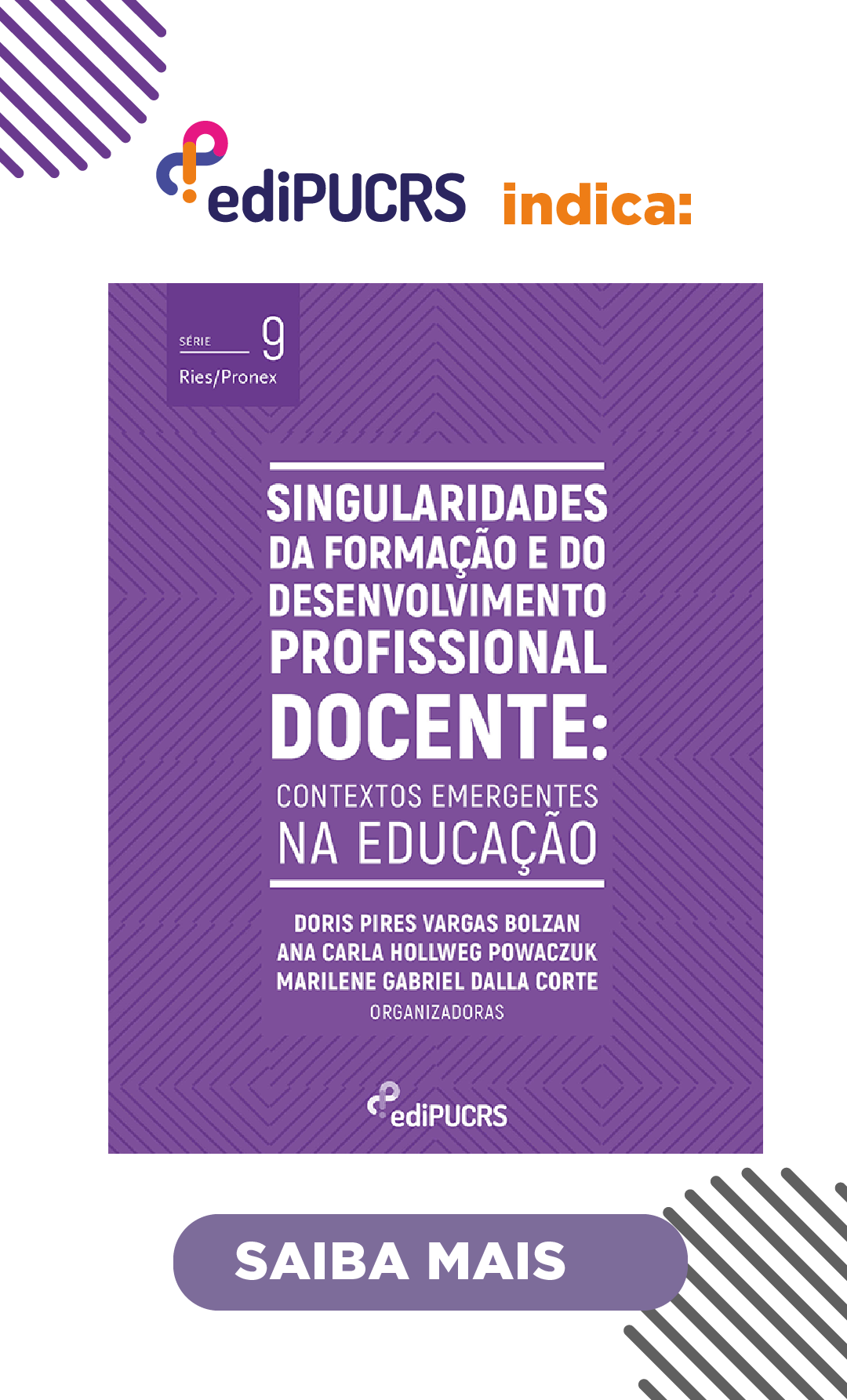Literature, immigrants and refugees in early child education
the development of sensitivity towards the other
DOI:
https://doi.org/10.15448/2179-8435.2024.1.43388Keywords:
Literature, Refugees, Immigrants, Child Education, Children.Abstract
This article sought to discuss the literature in Early Childhood Education with illiterate children. Its objective was to awaken the empathy and sensitivity of young children towards immigrant and refugee children who are attending the school environment through literary plots. The question that guided the elaboration of this article was: How to raise awareness, sensitize, motivate, develop empathy and solidarity with the other, in young children, to welcome a culturally different colleague, such as the refugee or the immigrant through literature books? In order to meet the proposed objectives and seek solutions to the questioning, several books with images were used, which tell a story, with the teacher as narrator and mediator. In order to present a representative selection, several works were selected, considering the interaction between verbal and visual language. It is important to note that illustrations and images in children's books for young children replace or complement the texts and bring the characters and their stories to life. To help with issues involving children with different cultures in schools, the work was also concerned with the use of literature in solving the problems that arise and in verifying whether the proposed objectives were achieved.
Downloads
References
BECKER, F. Educação e construção do conhecimento. Porto Alegre: Artmed, 2001.
BRASIL. [Constituição (1988)]. Constituição da República Federativa do Brasil. Brasília: Presidência da República, 1988. Disponível em: https://www.planalto.gov.br/ccivil_03/constituicao/constituicao.htm. Acesso em: 24 maio 2024.
BRASIL. Ministério da Educação. Secretaria de Educação Básica. Base Nacional Comum Curricular. Brasília: MEC, 2018.
CANDIDO, A. O direito à literatura. In: CANDIDO, A. Vários escritos. 4. ed. São Paulo: Duas cidades; Rio de Janeiro: Ouro Sobre Azul, 2004. p. 171- 193
COSSON, R. Paradigmas do ensino da literatura. São Paulo: Contexto, 2021.
DALCIN, A. R. O livro ilustrado de literatura infantil no Brasil: histórias, concepções e transformações. Revista Linha Mestra, Campinas, v. 14, n. 40, p. 80-94, 2020. Disponível em: https://lm.alb.org.br/index.php/lm/article/view/337/362. Acesso em: 23 maio 2024. DOI: https://doi.org/10.34112/1980-9026a2020v0n40p80-94
JUNGER, G. et al. Refúgio em números: 2023. Brasília: OBMigra, 2023. Disponível em: https://portaldeimigracao.mj.gov.br/images/Obmigra_2020/OBMIGRA_2023/Ref%C3%BAgio_em_N%C3%BAmeros/Refugio_em_Numeros_-_final.pdf. Acesso em: 20 jan. 2024.
LOTUFO, I. O livro-ilustração: palavra, imagem e objeto na visão de Odilon Moraes. Literartes, São Paulo, n. 3, p. 26-32, 2014. Disponível em: https://www.revistas.usp.br/literartes/article/view/89198/92110. Acesso em: 20 mar. 2023. DOI: https://doi.org/10.11606/issn.2316-9826.literartes.2014.89198
LUFT, L. Perdas e ganhos. 34. ed. São Paulo: Record, 2009.
MACEDO, L. Prefácio. In: BECKER, Fernando. Educação e construção do conhecimento. Porto Alegre: Artmed, 2001. p. i-viii),.
MEIRA, M. R. Educação estética, arte e cultura do cotidiano. In: PILLAR, A. D. (org.). A educação do olhar no ensino das Artes. 8. ed. Porto Alegre: Mediação, 2014. p. 120-140-
ORGANIZAÇÃO DAS NAÇÕES UNIDAS (ONU). Universal Declaration of Human Rights. Paris: Organização das Nações Unidas, 1948. Disponível em: http://www.un.org/en/universal-declaration-human-rights/. Acesso em: 20 jan. 2024.
PEREIRA, G. L. Direitos Humanos e migrações forçadas: introdução ao direito migratório e ao direito dos refugiados no Brasil e no mundo. Porto Alegre: EdiPUCRS, 2019.
PICOLI, B. A.; CAMINE, L. A.; CAREGNATO, M. Educação (histórica) modeladora e negação do outro no Sul do Brasil: reflexões sobre as possibilidades de diálogo e superação do etnocentrismo. Educação Por Escrito, Porto Alegre, v. 12, n. 1, p. 1-16, jan./dez. 2021. Disponível em: https://revistaseletronicas.pucrs.br/ojs/index.php/porescrito/article/view/39515. Acesso em: 14 mar. 2024. DOI: https://doi.org/10.15448/2179-8435.2021.1.39515
PILLAR, A. D. (org.). A educação do olhar no ensino das artes. 8. ed. Porto Alegre: Mediação, 2014.
PINTO, P. Pedidos de refúgio crescem 73% em um ano no Brasil. Agência Brasil, 20 jun. 2023. Disponível em: https://agenciabrasil.ebc.com.br/direitos-humanos/noticia/2023-06/pedidos-de-refugio-crescem-73-em-um-ano-no-brasil. Acesso em: 20 jan. 2024.
RICHTER, S. Infância e imaginação: o papel da arte na educação infantil. In: PILLAR, A. D. (org.). A educação do olhar no ensino das Artes. 8. ed. Porto Alegre: Mediação, 2014. p. 181-198.
SARMENTO, M. J. Imaginário e culturas da infância. Braga: Universidade do Minho, 2002.
SARMENTO, M. J.. As culturas da infância nas encruzilhadas da segunda modernidade. In: SARMENTO, M. J.; CERISARA, A. B. Crianças e miudos: perspectivas socio-pedagógicas da infância e educação. Porto: Asa, 2004. p. 9-34.
SARMENTO, M. J. Imaginário e culturas da infância. Cadernos de Educação, Pelotas, ano 12, n. 21, p. 51-70, jul./dez. 2003. Disponível em: https://revistas.ufpel.edu.br/index.php/educacao/article/view/6119/5355. Acesso em: 23 maio 2024.
Downloads
Published
How to Cite
Issue
Section
License
Copyright (c) 2024 Educação Por Escrito

This work is licensed under a Creative Commons Attribution 4.0 International License.





